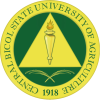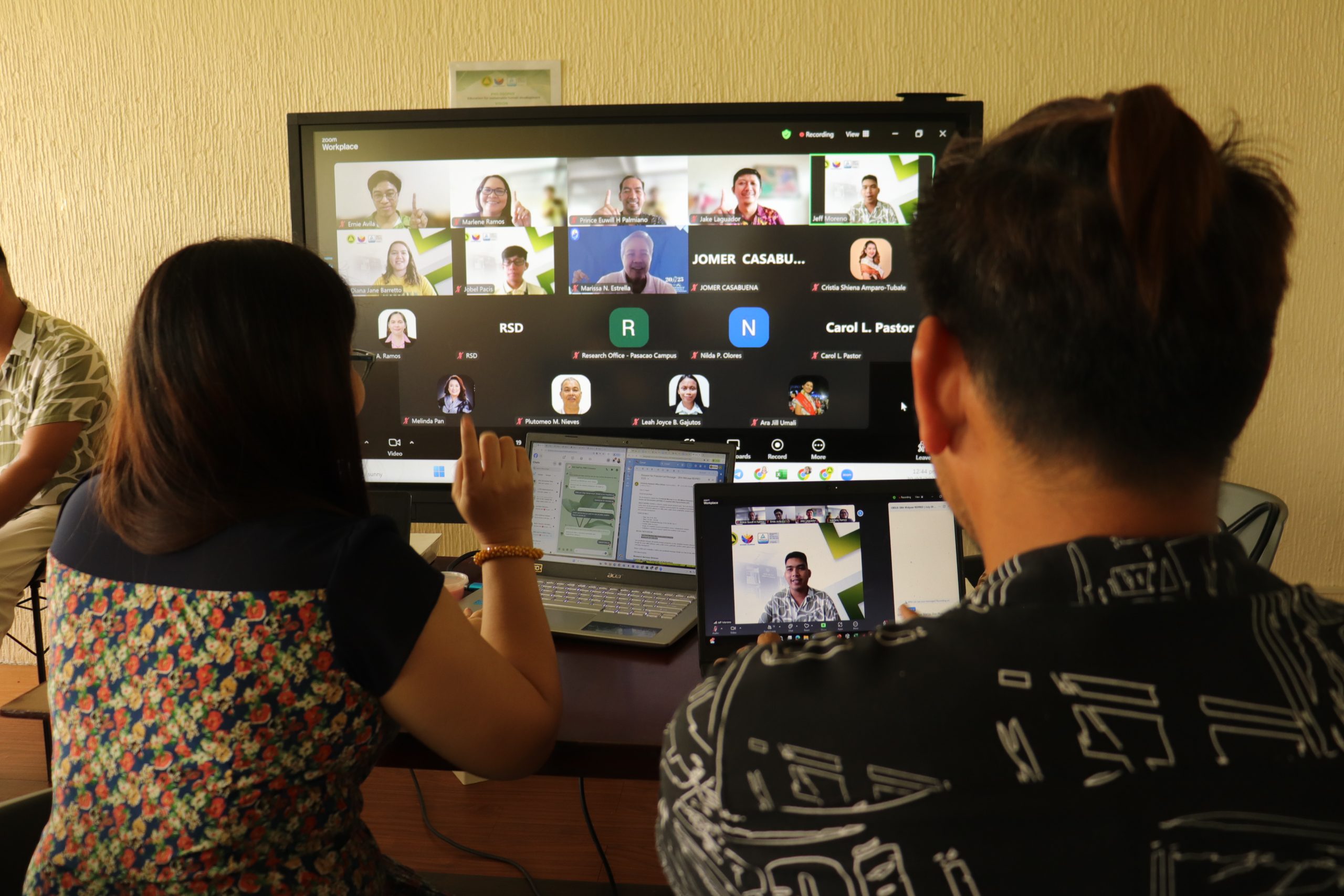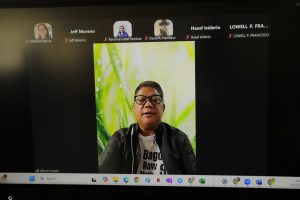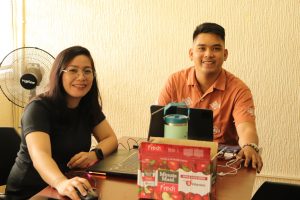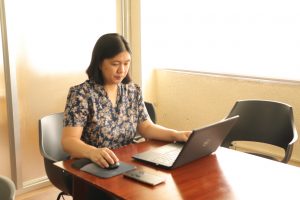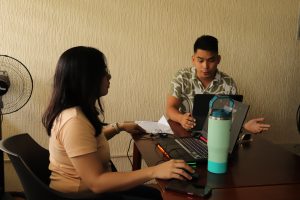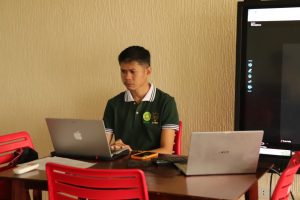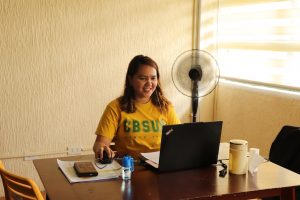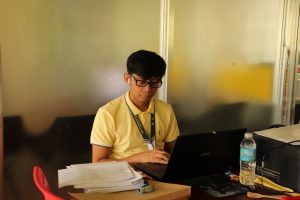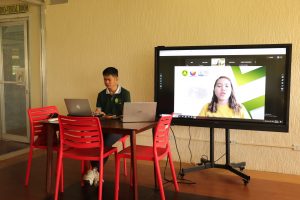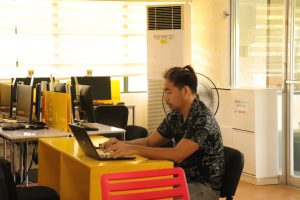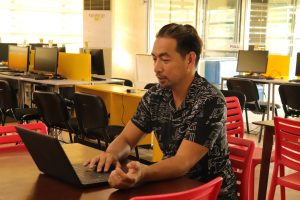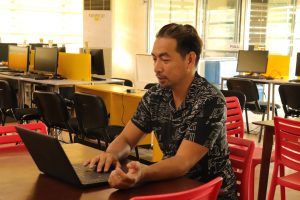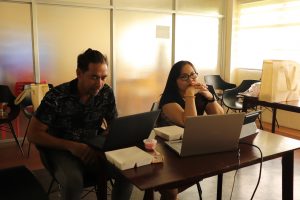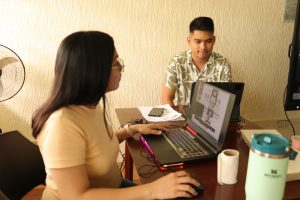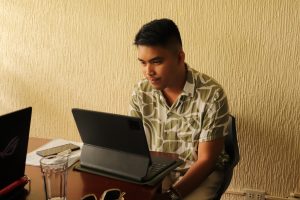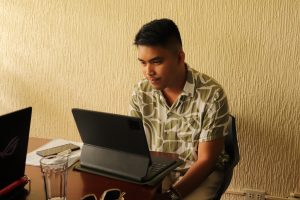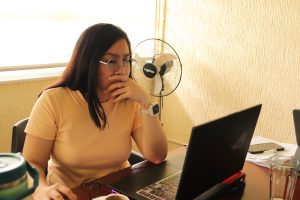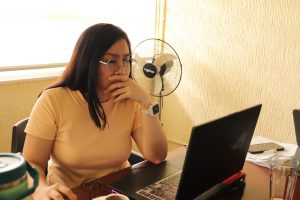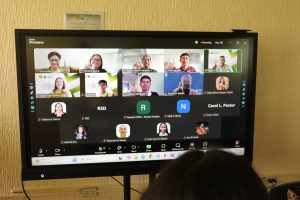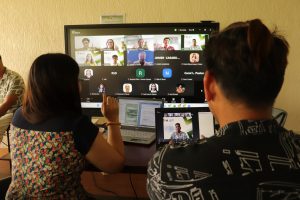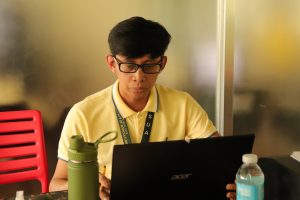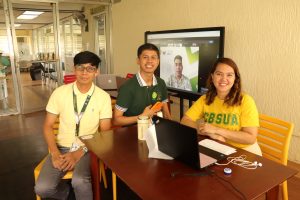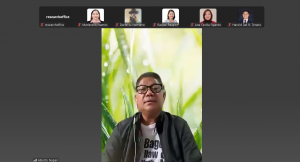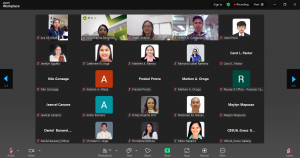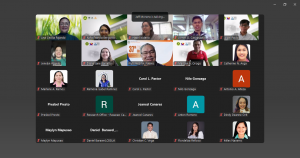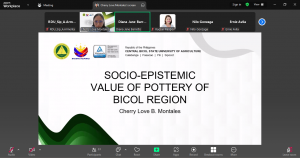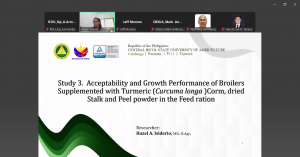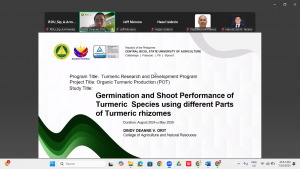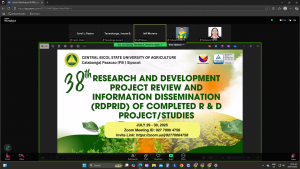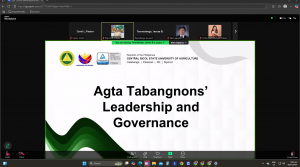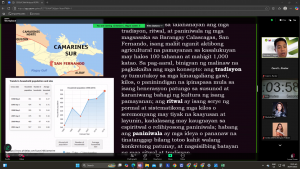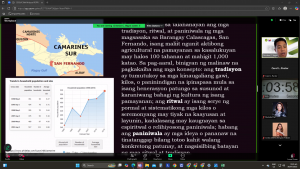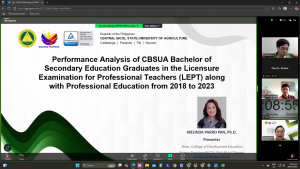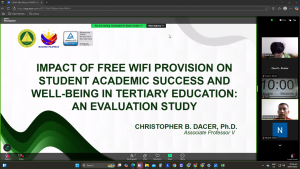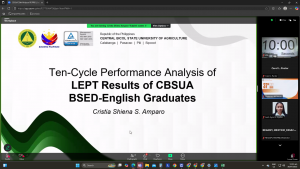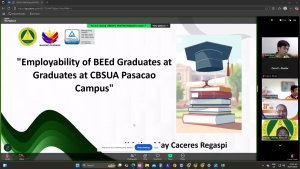The Central Bicol State University of Agriculture (CBSUA) proudly concluded the 38th Research and Development Project Review and Information Dissemination (RDPRID) on July 29-30, 2024, showcasing a diverse and impactful array of completed research projects from faculty researchers across the university’s four campuses and various academic disciplines.
CBSUA proudly acknowledges the contributions of six highly respected evaluators who lent their expertise to this initiative: Dr. Plutomeo M. Nieves, Research Director, University of Santo Tomas – Legazpi; Dr. Garry Vanz Blancia, Research Director, Romblon State University; Engr. Harold Jan Terano, Director, Center for Research Development Services, Camarines Sur Polytechnic Colleges; Dr. Marissa N. Estrella, Former Director, Bicol Consortium for Agriculture, Aquatic and Natural Resources Research & Development (BCAARRD); Dr. Jake M. Laguador, Dean, Graduate School, Bicol State College of Applied Sciences and Technology (BISCAST); and Dr. Ernie C. Avila, Research Focal Person, Polytechnic University of the Philippines – Ragay Campus. Their invaluable feedback provided both technical insights and strategic direction to help researchers move closer to publication and impactful presentation.
The sessions were designed to evaluate and provide feedback on completed research projects that are being prepared for publication in refereed journals and presentation in academic conferences and fora for the second half of the year.
The Midyear RDPRID serves as a strategic quality assurance mechanism, ensuring that CBSUA research outputs are not only completed but also refined, relevant, and publication-ready. It provides a platform for faculty-researchers to receive expert critiques and recommendations that further strengthen the academic rigor, presentation clarity, and impact of their work.
This year’s RDPRID served as a comprehensive platform for knowledge sharing, critical feedback, and recognition of exemplary works in both scientific and socio-cultural research domains. Each project underwent rigorous evaluation based on criteria including relevance, methodological soundness, practical application, and contribution to community development.
The reviewed studies demonstrated remarkable diversity in research focus and methodology. The study on the Socio-Epistemic Value of Pottery in Camarines Sur explored the province’s rich cultural heritage, with recommendations for integrating Vygotsky’s sociocultural theory and enhancing community policy engagement strategies. Similarly, heritage preservation research, including Rediscovering Komedya in Quipayo and Discovering Parroquia de Immaculada Concepcion mapped valuable intangible and built heritage assets. Evaluators recommended strengthening ethical considerations, improving visual documentation, and exploring intellectual property protection opportunities for these cultural studies.
Agricultural and environmental innovation featured prominently throughout the presentations. Research on turmeric-based feed and crop utilization revealed promising applications in livestock performance enhancement, plant germination improvement, and food sustainability. The studies opened new research frontiers while highlighting the need for further proximate analysis and comprehensive toxicity testing. Community-responsive agricultural projects included comprehensive assessments of organic farming practices, brackish water fishpond management, and the development of rice grit-based skincare products, all promoting sustainable agricultural practices and supporting local enterprise development.
Educational technology and digital innovation represented another significant research area. The integration of AI tools in Mathematics education and the development of a Statistical Reasoning Tool underscored CBSUA’s commitment to digital and pedagogical innovation. These projects generated productive discussions on comparative impact assessment methodologies and the importance of rigorous validation processes in educational research.
The expert evaluation panels provided constructive feedback aimed at further enhancing research quality and impact. Key recommendations included strengthening data triangulation methods for improved validity, enhancing budget transparency and financial accountability, improving visual presentations and documentation standards, reinforcing ethical research practices across all disciplines, and expanding community engagement and stakeholder involvement.
These comprehensive evaluations and insights aim to elevate CBSUA’s scholarly output while ensuring closer alignment with national development priorities and local community needs. The 38th RDPRID demonstrated the university’s continued commitment to producing research that is both academically rigorous and socially relevant, reinforcing CBSUA’s position as a leading research institution in the Bicol region that fosters innovation, bridging traditional knowledge systems with contemporary scientific approaches to address pressing societal challenges. | 𝘙𝘦𝘱𝘰𝘳𝘵𝘴 𝘧𝘳𝘰𝘮 𝘑𝘦𝘧𝘧𝘳𝘦𝘺 𝘔𝘰𝘳𝘦𝘯𝘰, 𝘍𝘢𝘤𝘶𝘭𝘵𝘺 𝘔𝘦𝘮𝘣𝘦𝘳-𝘚𝘪𝘱𝘰𝘤𝘰𝘵 𝘊𝘢𝘮𝘱𝘶𝘴

